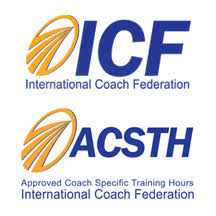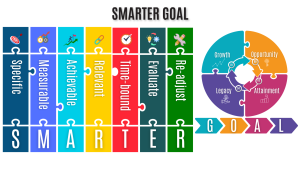Corporate Coach
A Corporate Coach, or more specifically in this case a CXO Coach, is a specialized executive coach who works with C-suite executives (e.g., CEOs, CMOs, CGOs, COOs, CFOs, CIOs, CAIO’s and other top-level leaders). Unlike AI, a human ‘coach’ brings emotions, feelings, experience in support these high-level executives in enhancing their leadership skills, strategic thinking, and overall performance to drive organizational success. There’s a place for AI coaching (coming soon*) and is explained at the bottom of this page*
Here’s an overview of what a CXO Coach typically does:
1. Leadership Development
> Enhancing Leadership Skills– A CXO coach works with executives to refine essential leadership qualities such as decision-making, emotional intelligence, communication, and strategic thinking.
> Vision and Strategy- They help CXOs in articulating a clear vision for the organization and developing strategies to achieve long-term goals.
> Executive Presence: Coaches assist in building an executive presence that fosters confidence, authority, and credibility in both internal and external settings.
2. Performance Optimization
> Setting Goals: CXO coaches help executives set clear, achievable goals that align with both personal aspirations and the company’s strategic objectives.
> Accountability: The coach holds the executive accountable for achieving their goals, providing ongoing feedback and challenging them to step outside their comfort zone when necessary.
> Time Management and Prioritization: For busy executives, CXO coaches often focus on improving time management skills, helping them prioritize tasks that have the highest impact on business outcomes.
3. Decision-Making and Problem-Solving
> Strategic Thinking: CXO coaches enhance an executive’s ability to think critically and strategically, allowing them to make better long-term decisions for the company.
> Handling Complex Issues: They guide executives through high-stakes decisions, offering fresh perspectives and frameworks to solve complex business problems.
> Risk Management: They provide tools and strategies for assessing risks and making calculated decisions that align with the company’s goals and risk appetite.
4. Communication and Influence
> Internal Communication: A CXO coach helps executives improve their communication skills, both upward (to the board of directors) and downward (to their teams), ensuring clarity and alignment at all levels of the organization.
> Stakeholder Management: Coaches assist CXOs in managing relationships with key stakeholders, including investors, board members, and clients, by enhancing their negotiation, influence, and conflict resolution skills.
> Public Speaking and Media Training: For executives who regularly represent their companies in public forums, CXO coaches may also provide media training, helping them articulate messages effectively to a broad audience.
5. Managing Change and Transformation
> Navigating Organizational Change: CXO coaches help leaders guide their organizations through times of change, such as mergers, acquisitions, digital transformations, or restructuring efforts.
> Change Leadership: They teach executives how to lead with confidence and resilience during periods of uncertainty, ensuring that they can maintain employee engagement and morale.
> Innovation and Adaptability: A key focus area is fostering a culture of innovation and helping executives adapt their leadership approach to rapidly changing market conditions.
6. Emotional Intelligence and Personal Development
> Self-Awareness: CXO coaches help executives develop a deeper understanding of their strengths, weaknesses, and behavioral tendencies. This self-awareness is critical for improving interpersonal relationships and leadership effectiveness.
> Emotional Regulation: They provide tools for managing stress, emotional reactivity, and conflict, ensuring that executives maintain composure and make sound decisions under pressure.
> Work-Life Balance: For high-performing executives, a coach helps balance professional responsibilities with personal well-being, avoiding burnout and maintaining long-term productivity.
7. Succession Planning and Legacy Building
> Succession Strategy: CXO coaches often assist in preparing the next generation of leaders, ensuring a smooth transition of leadership when the time comes.
> Legacy and Impact: Many CXO coaches help executives think beyond short-term goals to consider the long-term legacy they want to leave within the organization and industry.
8. Customized Coaching for CXOs
> Personalized Development Plans: The coaching process is highly personalized to the individual executive, focusing on their unique challenges, business context, and career aspirations.
> Confidential Support: CXO coaches provide a confidential sounding board for executives to discuss sensitive issues or explore new ideas without fear of judgment or repercussions.
Overall, a CXO coach plays a critical role in shaping the effectiveness and impact of top-level executives, helping them not only lead their companies to success but also achieve personal growth as leaders.
new website functionality!
Corporate Expat Coach
I specialize in helping professionals who are relocating or working in a foreign country, typically for corporate assignments. I provide guidance and support throughout the transition to ensure a smooth integration into the new cultural, professional, and personal environments. Here’s a few things I do:
1. Cultural Integration
> Cultural Awareness– I help expatriates understand and navigate the cultural norms, business etiquette, and social practices of the host country.
> Cross-Cultural Communication- I teach effective communication strategies to avoid misunderstandings and foster positive relationships with local colleagues and clients.
> Adapting to Local Customs- I assist expatriates in understanding local customs, values, and social norms that can influence both professional and personal interactions.
2. Career and Performance Support
> Professional Development- I work with expatriates to align their goals with the expectations of their corporate role, ensuring that they maintain or improve performance in a new work environment.
> Leadership and Team Management- For expats in leadership roles, I’ll help develop skills to manage multicultural teams and navigate differences in leadership styles across cultures.
> Networking and Relationship Building– I guide expatriates in building meaningful professional relationships in the host country, which can be crucial for career success.
3. Personal Adjustment
> Work-Life Balance- I offer advice on maintaining a healthy work-life balance in a new setting, taking into account different time zones, work hours, and social expectations.
Family Support- For expatriates with families, I help with strategies to support the relocation process for spouses and children, including school options, adapting to the new lifestyle, and dealing with homesickness.
> Coping with Culture Shock– I assist with managing the emotional and psychological challenges of living abroad, such as isolation, homesickness, or stress related to the new environment.
4. Logistical Guidance
> Practical Guidance- I provide insights on the logistics of living in a new country, such as housing, healthcare, transportation, and legal matters (visas, work permits).
> Financial and Taxation Advice– Depending on the country, I can help with managing finances, understanding tax laws, and navigating the financial systems in the host country.
5. Repatriation Coaching
> Return Transition- I can help with the repatriation process, assisting expatriates in reintegrating into their home country after their assignment abroad ends. This includes preparing for reverse culture shock, maintaining international connections, and planning future career steps.
6. Customized Coaching Programs
> Tailored Approach- Depending on an individual’s needs, I may offer personalized coaching programs that address specific challenges related to the expatriate’s industry, role, or personal circumstances.
Overall, as a Corporate Expat Coach, I like to help professionals succeed in international assignments by providing the tools and support needed to thrive in new cultural and professional environments.

*A Human Coach and an AI Coach can both support a corporate executive, but their approaches and strengths are quite different as explained below:
Human Coach for a Corporate Executive:
1. Emotional Intelligence & Empathy: Human coaches can understand the emotions, underlying motivations, and complexities of an executive’s situation. They can create a safe space for personal reflection, offer empathy, and build trust through nuanced interactions.
2. Contextual Understanding: A human coach is capable of adjusting advice based on subtle contextual factors—such as office dynamics, corporate culture, or personal challenges—that require a deeper, often intuitive, understanding.
3. Personalized Strategy: Human coaches can offer highly personalized guidance, taking into account an executive’s personality, leadership style, values, and life experiences.
4. Accountability & Motivation: Human coaches can build a relationship where the executive feels personally accountable. Their real-time interactions, encouragement, and motivational tactics can push the executive to achieve goals they might not otherwise pursue.
5. Dynamic Adaptation: A human coach can adapt their approach dynamically based on ongoing feedback, conversation flow, and situational changes. If something isn’t working, they can adjust in the moment.
6. Deep Reflection and Insight: Human coaches can ask open-ended questions that provoke deeper self-reflection and help executives gain profound insights about their leadership or personal development.
AI Coach for a Corporate Executive:
1. Data-Driven Insights: AI can analyze large datasets and provide actionable insights based on patterns. For instance, an AI tool could assess an executive’s leadership performance through feedback from team members and generate reports on areas for improvement.
2. Consistency & Scalability: AI can provide consistent feedback and guidance 24/7, across multiple executive profiles, without being affected by emotional bias or burnout. It can serve multiple clients simultaneously without loss of quality.
3. Personalization via Algorithms: AI can offer personalized solutions based on a set of data points (e.g., personality assessments, historical performance data, or cognitive preferences), but these solutions are based on programmed algorithms and not the nuanced understanding a human coach might provide.
4. Structured Support: AI-based coaching tends to focus on structured exercises, task management, and process-oriented advice. It might offer actionable steps like “set goals for the next quarter” or “try this leadership technique,” but lacks the emotional intelligence to deeply connect with the executive on a human level.
5. Predictive Capabilities: AI can predict potential outcomes by analyzing vast amounts of data across industries, corporate environments, and personal behavior. It can identify trends, strengths, and weaknesses that might not be immediately apparent to a human coach.
6. Efficient & Objective Feedback: AI can offer objective feedback based on data analysis. This can be beneficial when the executive is seeking straightforward advice or performance tracking, but it lacks the nuance of human judgment and doesn’t fully account for subjective, intangible factors.
Key Differences:
– Empathy and Adaptability: Human coaches can interpret emotional context, adapting to the personal and professional challenges an executive faces in real-time, whereas AI provides more objective and standardized solutions.
– Emotional Connection: A human coach can form a personal bond that influences motivation and long-term growth. AI, while efficient and data-focused, lacks the ability to foster this kind of connection.
– Depth of Reflection: A human coach can guide deep self-reflection through conversations and introspection, while AI typically offers more transactional, results-oriented coaching based on data.
In summary, a human coach offers emotional insight, personalized interaction, and dynamic support, whereas AI offers structured, data-backed, and consistent solutions, especially effective for performance tracking, task management, and efficiency. Combining both—human coaching for deeper emotional and strategic development with AI for actionable insights and performance tracking—can be a powerful way to support corporate executives.


